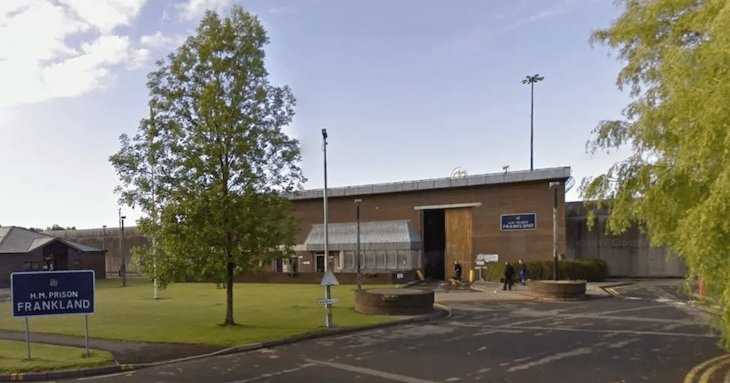HMP Frankland, in Durham, is supposed to be one of the most secure jails in the country. The category A prison holds terrorists and murderers, including Soham child killer Ian Huntley. Frankland should be a place of order, where the state is in absolute control. Yet the jail is said to be so overrun with Islamists that inmates who refuse to join their gangs are being forced into separation units for their own safety.
Prisoners who refuse to convert to Islam are also being targeted, according to a leading criminal defence barrister who uncovered the shocking allegations on a visit to Frankland. Tony Wyatt told the Times that ‘there are so many…members of Muslim gangs in prison, you just can’t contain the problem. The reality is that these (segregation) units have become a refuge for those targeted by extremist gangs. Prisoners who stand up to Islamist gangs, refuse to convert, or challenge their authority are being placed in segregation for their own protection.’
It’s shocking that the prison service has so little control of its inmates, and the consequences could be deadly.
‘Simon’, a former prisoner at HMP Belmarsh, another high-security jail with a large Muslim, and terrorist, population told me he isn’t surprised. He left the jail in 2020, but even then Islamist gangs had enormous power and influence. Simon recalled a young prisoner named Sudesh Amman being groomed by extremists during his sentence.
‘They saw he wasn’t the brightest, and was looking for purpose,’ he told me. Simon was so concerned that he reported the matter to a senior prison officer. Despite this, Amman was released from jail on the 23 January 2020. Two weeks later, he was shot dead by police after stabbing two people in Streatham, south London.
In most jails, there is a hierarchy of inmates, with sex offenders invariably at the bottom. Belmarsh was very different, Simon says; Muslim inmates there protected a prisoner who’d committed appalling rapes. ‘In Belmarsh, no Muslim inmate cared what another Muslim was in for,’ he told me, ‘religion supersedes everything’.
Such powerful bonds of loyalty are just one part of what Professor Ian Acheson has called ‘Muslim gang culture’. In 2022, Jonathan Hall KC produced a report on ‘Terrorism in Prisons’. He described a culture which has existed since the late 2000s, in which groups of prisoners have adopted an ‘Islamist stance that condones or encourages violence towards non-Muslim prisoners, prison officers and the general public.’
In Belmarsh, as in Frankland, little appears to have changed in the years since. ‘In Belmarsh if anyone targeted one Muslim prisoner, all of them would be out for revenge,’ Simon says.
Hall’s report also described ‘highly structured Islamist gang operating within the prison estate’. He said that those running prisons have a ‘tendency to view Islamist group behaviour’ as providing ‘a degree of calm and stability which means it is not necessarily perceived as a problem’. There was also a ‘reluctance to focus on Islamist group behaviour’, and prison officers would sometimes appeal to the ‘wing emir’ to maintain order.
Indeed, Frankland’s last Independent Monitoring Board report described a prison with ‘calm and settled wings’. The risk is that officers and governors might prefer a quiet life, even if that means handing the jail over to the effective control of radicalising Islamists.
The prison service has denied the claims about Frankland, saying they ‘are completely untrue’. I understand that the jail’s governor has told the Ministry of Justice that there’s no truth in the reports. But for those who understand the nature and scale of the Islamist threat in our jails, these claims are all too credible.







Comments